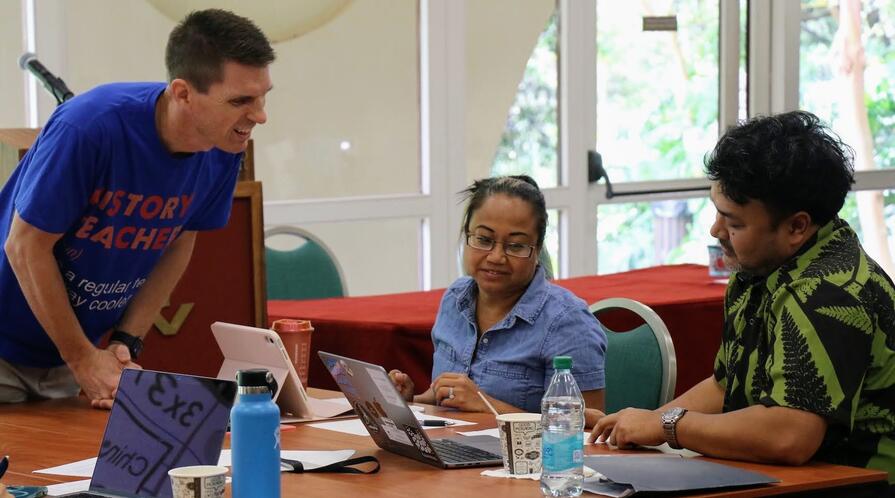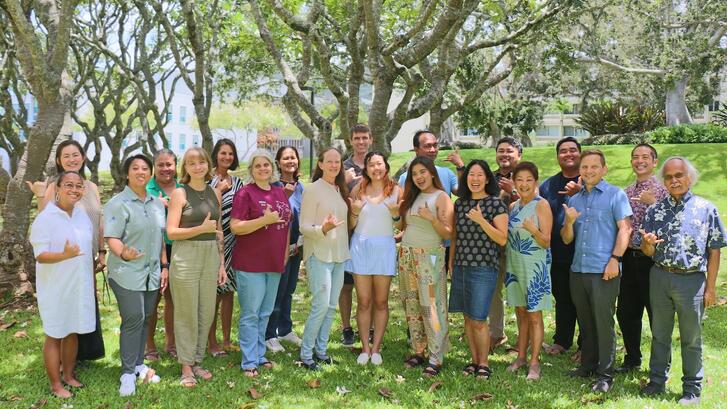Application Now Open for the 2026 Stanford/SPICE East Asia Seminars for Teachers in Hawai‘i
Applications are now being accepted for the 2026 Stanford/SPICE East Asia Seminars for Teachers in Hawai‘i (Stanford SEAS Hawai‘i). This free professional development program offers Hawai‘i educators a unique opportunity to deepen their knowledge of East Asia and strengthen their classroom teaching. Stanford SEAS Hawai‘i is administered by the Stanford Program on International and Cross-Cultural Education (SPICE) with generous support from the Freeman Foundation. Twenty teachers will be selected to participate in a fellowship running from late March through July 2026.
The application form is available at https://forms.gle/pPgP5GKb19m2QogX8, and the deadline to apply is February 23, 2026.
Open to high school teachers across Hawai‘i, the fellowship includes a series of expert-led virtual seminars held from March to June, followed by a three-day, in-person teacher institute in Honolulu in July 2026. Program content examines East Asia, U.S.–Asia relations, and the Asian diaspora in the United States, with particular attention to Hawai‘i’s historical and contemporary connections. Participants will also receive a wide range of teaching resources and take part in discussions focused on both content and pedagogy to support effective classroom instruction.
Past participants have described the program as both intellectually enriching and professionally affirming. Rukhsanna Guidroz, a teacher at Seabury Hall on Maui, reflected on her experience: “My purpose for participating in Stanford SEAS Hawaii was to find community and inspiration in my work as an educator. I absolutely feel that these goals were achieved. I found both in the passionate teachers I met and the thought-provoking lectures we experienced together. Hearing different perspectives—both historical and personal—helped broaden my understanding of East Asia, while the exchange of ideas introduced me to new teaching strategies that I’m excited to bring into my own classroom.”
Casey Hulten, a teacher at Kea‘au High School on Hawai‘i Island, echoed this enthusiasm: “I was blown away by the amount of information I learned and how it interweaves with our Island history. The combined knowledge of all the speakers was unbelievable. I feel so blessed to have been part of this enriching opportunity.”
For additional information about Stanford SEAS Hawai‘i, including participant benefits and program expectations, visit the program webpage. Applications must be submitted by February 23, 2026.
To be notified of other professional development opportunities, join SPICE’s email list and follow SPICE on Facebook, X, and Instagram.
In addition to Stanford SEAS Hawai‘i, SPICE offers teacher PD opportunities virtually to teachers nationwide and locally in California to middle school teachers, high school teachers, and community college instructors. For more information on those programs, please visit the webpages below.
Read More

High school teachers across the state of Hawai‘i are encouraged to apply. Application deadline: February 23, 2026.









 Sara Arakawa giving a speech at 2023 United Peace Assembly in Hiroshima.
Sara Arakawa giving a speech at 2023 United Peace Assembly in Hiroshima.























 Project 17 discussion structure; photo courtesy Thea Louise Dai
Project 17 discussion structure; photo courtesy Thea Louise Dai



